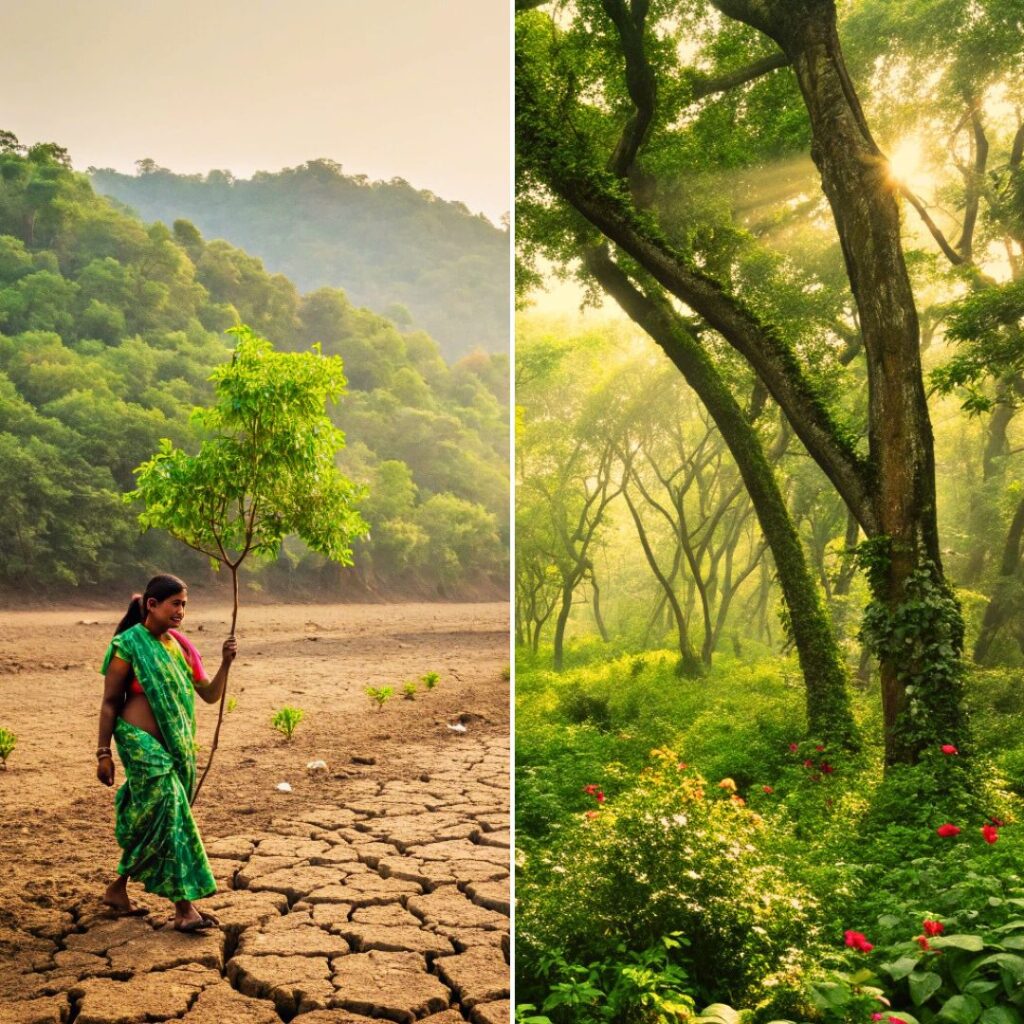“I spent about a month travelling through Adivasi villages in Madhya Pradesh and Chhattisgarh, looking at evictions of the Baiga community from their ancestral land in Kanha tiger reserve. During my time there I realised why their land struggle is of upmost important to humanity as a whole.
In the Western world we have become so detached from our environment and our relationship to land has been mostly commodified and destroyed, but in the Adivasi villages I felt such a strong nostalgia for this way of life that doesn’t even exist in my memory. As we drift further from that which makes us fundamentally human, reverence, respect and coexistence with our natural environment, we become closer to destroying that which sustains our existence on earth.
The long-term psychological trauma of being torn from the land which your community has cherished for countless generations is something very difficult for us, those who have lived our lives surrounded by cities and technology, to understand.
The evictions of Adivasi communities is,and always has been, illegal under International Human Rights Law and the Indian Constitution, and yet it continues unnoticed by the international community, condoned by widely support conservation organisations like WWF. The justification given for these evictions is that Adivasi communities are the ‘enemy’ of conservation, people cannot live in the jungle without harming it. This is factually incorrect and the true enemy of conservation in places like Kanha are the urban western and domestic tourists on tiger safaris in their open top jeeps, spitting out petrol fumes, with their camera lenses and piles of plastic water bottles.
The international activist community must realise what stands to be lost as these evictions continue, and they must realise the interconnected nature of our struggles. The Adivasi land struggle is intrinsically linked to issues like climate change, globalisation, mining and other extractive industries. If the issues and the struggles are connected, then the solidarity must also be.
In one small village, where a group of Baiga evicted from Kanha were squatting on dry, arid land, struggling to produce enough food to feed themselves, I spoke with a beautiful woman with sadness in her eyes.
“Before, we were kings of the jungle. Now we are like dogs.”
And the 5* ‘eco-tourist’ lodges continue to spring up aroundKanha, catering for the needs of the wealthy who require their urban comforts – air conditioning, western food, single malt whiskey. Apparently, not all humans are the enemies of conservation.”











